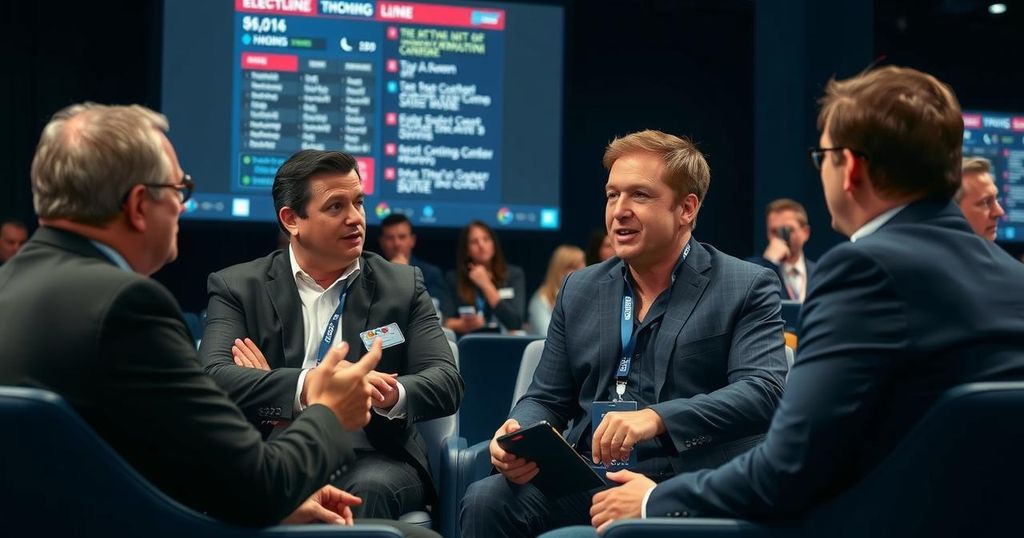Election Officials Face Misinformation Challenge from Elon Musk on X
Election officials are grappling with the spread of misinformation on X, particularly from Elon Musk, whose substantial follower base often eclipses their attempts to clarify inaccuracies. Instances from election officials in Virginia, Philadelphia, and Arizona show the difficulties they face in countering false claims effectively. Nonetheless, some officials, like Jocelyn Benson of Michigan, have successfully matched Musk’s reach with accurate rebuttals, emphasizing the need for proactive communication in preserving electoral integrity.
Election officials are increasingly finding themselves in a precarious position as they confront misinformation spread by Elon Musk on his platform, X. Mark Coakley, a registrar in Henrico County, Virginia, recently experienced this firsthand when he encountered a misleading tweet from Musk regarding fraudulent votes in the 2020 election. In response to Musk’s claim, Coakley’s office swiftly debunked the misinformation, yet the engagement on their posts was dwarfed by the massive reach of Musk’s initial tweet, which had garnered millions of views. This disparity highlights the overwhelming challenge election officials face in countering misinformation propagated by influential figures like Musk, who boasts a following of approximately 200 million. Other election officials, including those from Philadelphia and Arizona, have similarly attempted to clarify inaccuracies in Musk’s posts, only to be met with minimal audience engagement. Voting expert Larry Norden from the Brennan Center for Justice noted, “It’s just not a fair battle.” The continual misinformation narratives espoused by Musk are acknowledged as detrimental to democracy, drawing significant focus away from the essential work of election officials. However, one notable exception to this trend is Jocelyn Benson, Michigan’s Secretary of State, who managed to achieve greater engagement with her rebuttal to Musk’s claim about voter registration than Musk’s original post. Benson asserted, “There aren’t more voters than citizens in Michigan… 7.2 million active registered voters and 7.9 million citizens of voting age in our state.” This interaction demonstrates that while the battle against misinformation is indeed challenging, strategic responses can still capture substantial public attention.
The rise of misinformation on social media platforms poses a significant challenge to the integrity of elections. As influential figures such as Elon Musk utilize their platforms to disseminate false or misleading claims about election processes, election officials must navigate this landscape while trying to ensure the public remains informed. The disproportionate reach of Musk’s posts compared to the responses from election officials illustrates the power dynamics at play in the fight against misinformation. The ramifications of such misinformation are profound, as they can undermine trust in electoral processes and distract officials from their responsibilities. Moreover, the interaction between Musk and election officials underscores the contemporary reality where digital platforms enable the rapid spread of information, complicating public discourse and democratic processes. Furthermore, the ability of some officials to successfully counter misinformation highlights the need for effective communication strategies.
In conclusion, election officials are facing a daunting challenge in addressing the widespread misinformation perpetuated by Elon Musk on his platform, X. The stark contrast between the engagement levels of Musk’s erroneous claims and the responses from officials exemplifies the hurdles in combating false narratives. The implications of this misinformation extend beyond mere public confusion—they threaten the fundamental trust in democratic institutions. Effective rebuttals, such as those from officials like Jocelyn Benson, demonstrate a potential path forward, emphasizing the importance of active engagement and clarity in the face of overwhelming misinformation.
Original Source: abcnews.go.com




Post Comment